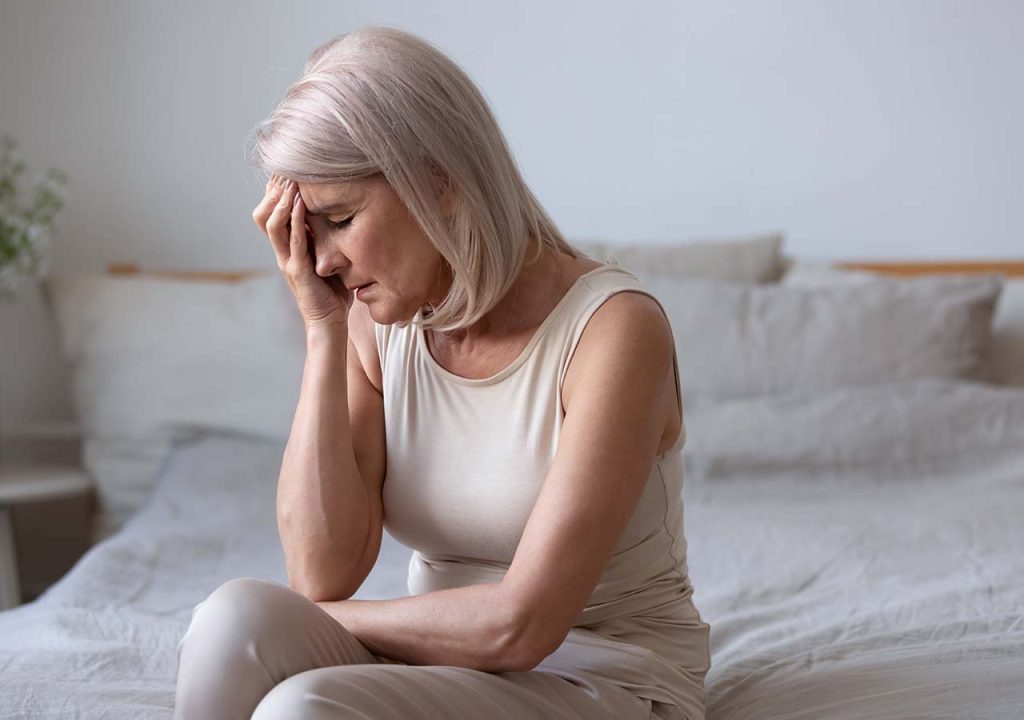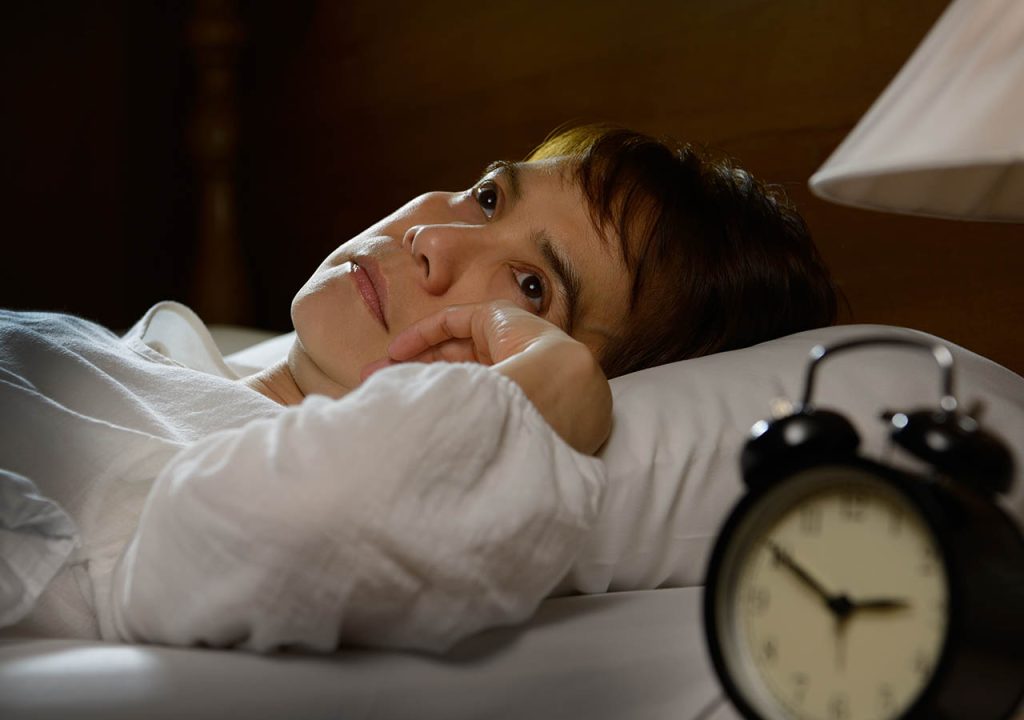Dealing with insomnia and the menopause
Insomnia is a sleep disorder where you have difficulty falling asleep, staying asleep, or experiencing poor-quality sleep. This can lead to feeling tired through the day, making you grumpy and irritable. It can have a serious affect on your day-to-day activities, often making it harder to accomplish simple tasks or concentrating on work. It can last from just a few nights or it can be a chronic condition, causing problems for months or years. Insomnia and the menopause often go hand in hand.
During menopause, a woman’s body undergoes significant hormonal changes, most notably a decrease in the production of estrogen. These hormonal fluctuations can have a direct impact on sleep patterns and may contribute to insomnia.
If you are looking for ways to reduce the impact that insomnia is having on your life through your perimenopause or menopause, then here are some suggestions.

Sign up to Within Eve’s limited time trial
Within Eve uses body sensors attached to your arm to track what your body is doing and when. This way, we can see what might be causing changes in your hormone levels. Sign up for a one month trial for Within Eve for just £400 and regular social media updates from you on how you are using our technology and advice to help change your life for the better.
Stick to your sleep schedules
Try to retire to bed and wake up at the same time every day, even on weekends. This helps regulate your body’s internal clock. It may mean missing on out some lay-ins and late nights, but it will be beneficial to you in the long run.
Build a relaxing bedtime routine
Having a comfortable and reliable bedtime routine can make a huge difference to your nightly rest. For example, try reading (or listening to) a few chapters of a book, practicing some meditation or deep breathing, or even having a light snack or bedtime herbal tea.
Turn off screens
With so many screens around us these days, from TV to mobile to laptops and even watches, it can be hard to turn off form the outside world. Try switching all these devices off an hour or so before your bedtime to give you time to digest what you’ve read that day, and let your brain start to relax in preparation for sleep. Not only that, but screens can emit a blue light which can affect our sleep. Some phones have settings which limit the amount of blue light at night, so it’s worth checking your phone settings for this.

Be careful what you eat
Avoid large meals, caffeine, and alcohol close to bedtime as they can disrupt sleep. Try to have a light, healthy snack if you’re hungry before bedtime. Within Eve can help you with tracking your food intake and looking at how it can affect your sleep patterns. Sign up today with our special offer.
Stay active
Regular physical activity during the day can promote better sleep at night. There is some debate over what time you should exercise, and we should listen to our own bodies to tell us. Within Eve is set up to help you do this and find the optimal time and exercise to help you sleep at night. Exercising can help calm your mood and lower your stress levels – both great for getting ready for sleep.
Help from Within Eve
Within Eve is set up for women going through the perimenopause or menopause, and we can help analyse your body to find out the best way to get you to sleep. Insomnia and the menopause often go together, but with help from Within Eve, you can aim to break that link and get your good, long, deep sleeps back again. Find out more about our limited time trial here.
